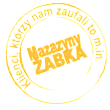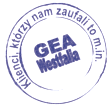What will the TDT licence be useful for?
TDT certification
Transport Technical Supervision is an extension of the abbreviation TDT. It deals with
equipment found in places associated with onward transportation, e.g. overhead cranes at a railway station or trains. In most situations it is easy to determine which qualifications are required for a particular machine. The stairs begin in the case of: trolleys, loaders, platforms or cranes. This is when UDT or TDT registration is most relevant.
To what extent is the work being carried out ?
- Technical supervision of technical equipment:
- mounted on the railway area, railway sidings, rail vehicles;
- freight cableways and passenger trains and ski lifts;
- tanks, including tanks used in road, rail and inland waterway traffic;
- Fuel vapour recovery plants operating in railway areas, railway sidings, harbours and marinas and inland waterways;
- Located:
- on sea and inland waterway vessels,
- on pontoons,
- on the docks,
- in marinas and ports and inland waterways,
- where maritime, inland waterways, primarily pressurised and non-pressurised equipment,
- tanks (cisterns) and cranes,
- in the process lines of the port transhipment depots and the equipment of other stations present in the area planned for transhipment work and other shipping activities.
Would you like to broaden your qualification to operate NO TDT tank filler ?
Sign up for training on:
- employees of companies that produce chemicals and operate bottling plants;
- professional drivers with a special ADR licence (transport of dangerous substances). You will now be able to fill the tanker yourself.
Class topics:
- fire regulations;
- HEALTH AND SAFETY;
- technical supervision;
- physical and chemical properties of hazardous substances( flammable and liquid materials);
- composition of fuels and substances carried;
- tank structures;
- tankers containing hazardous substances;
- handling of pouring machines.
Classification of dangerous goods:
| Class 2 | Gases; |
| Class 3 | Materials: flammable liquids; |
| Class 4.1 | self-reactive, explosive, solid inflammable and desensitised; |
| Class 4.2 | self-inflammatory, |
| Class 4.3 | producing flammable gases on contact with water, |
| Class 5.1 | oxidising; |
| Class 5.2 | Organic peroxides; |
| Class 6.1 | Materials: toxic, |
| Class 6.2 | infectious, |
| Grade 8 | corrosive; |
| Grade 9 | Miscellaneous materials and objects and all goods not classified as dangerous which are filled, emptied or transported under pressure (oils, asphalt, flour, cement, fertilisers, petri fluid, bituminous masses and others). |
Questions and answers
What requirements do you need to meet to pass the course?
- Knowledge of Polish communicatively or with translator;
- Full-term;
- Education in the required topic;
- Learning about examination principles (in theory and practice).
Who organises the state exam after training for NO TDT pourers?
It is carried out by the Transport Technical Supervision under the same conditions as in the workplace.
How long are the entitlements valid?
They are valid for 5 years. Three months before the end of the entitlement, an application for a free extension of the certificate must be submitted.
































